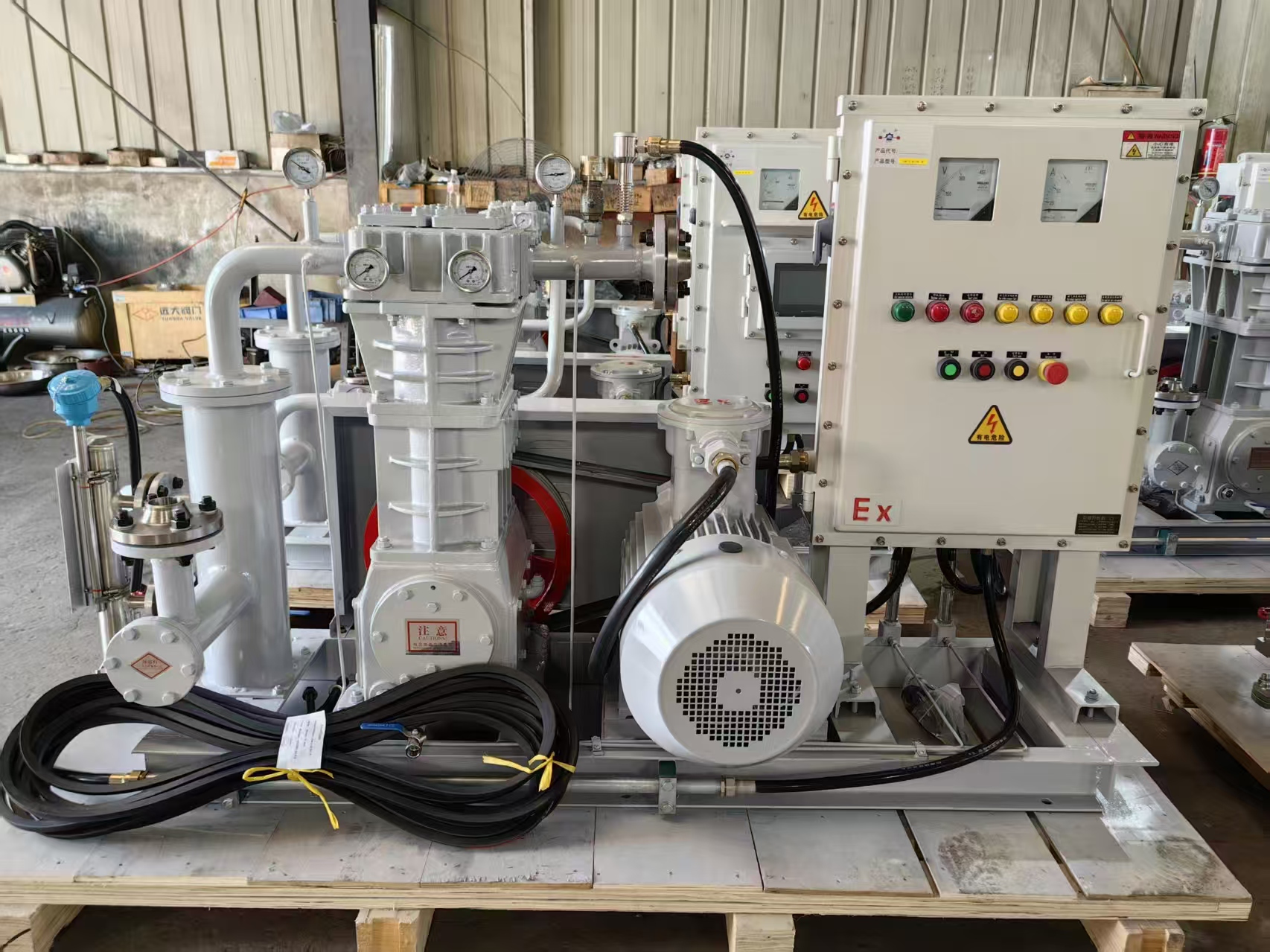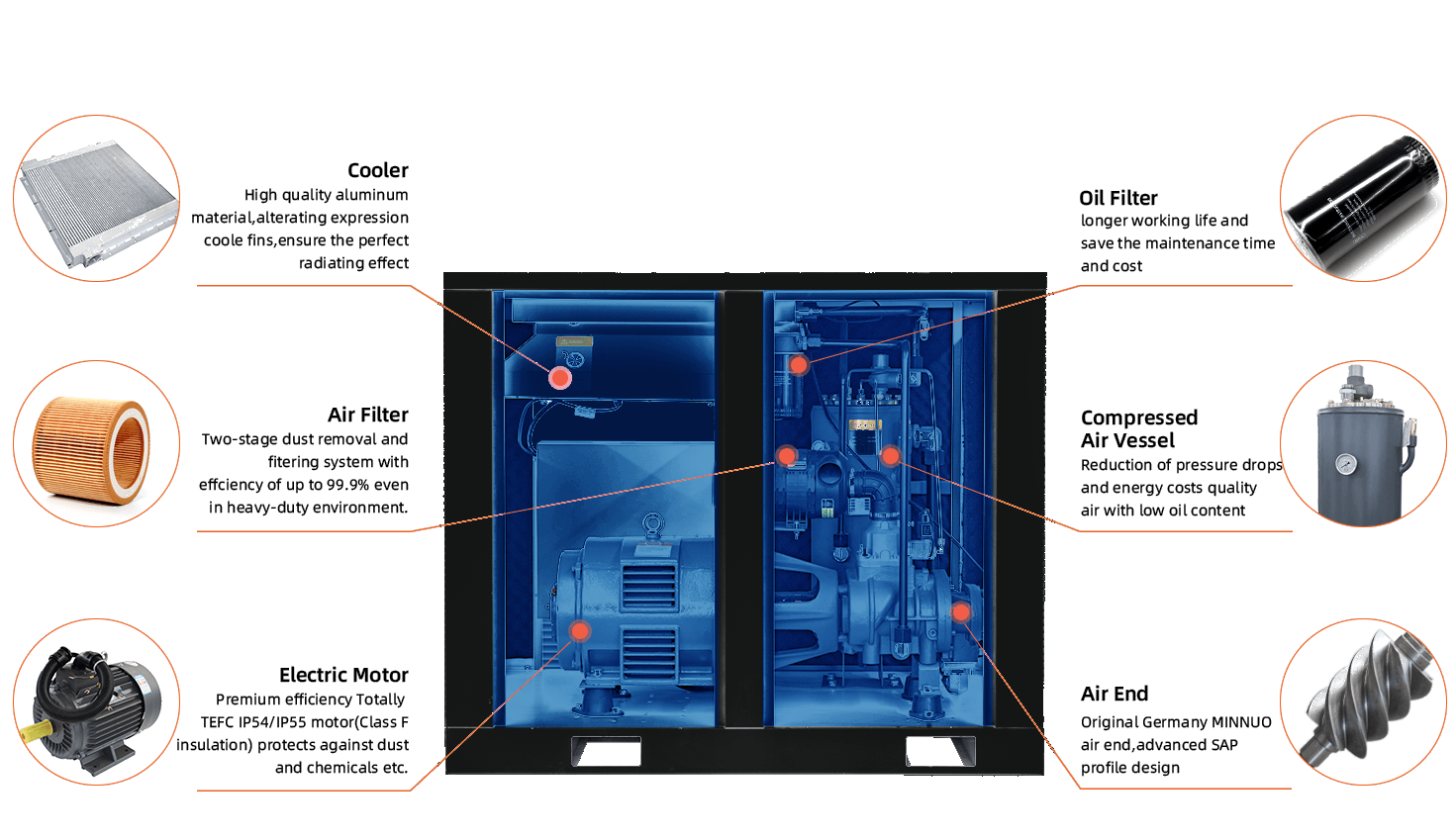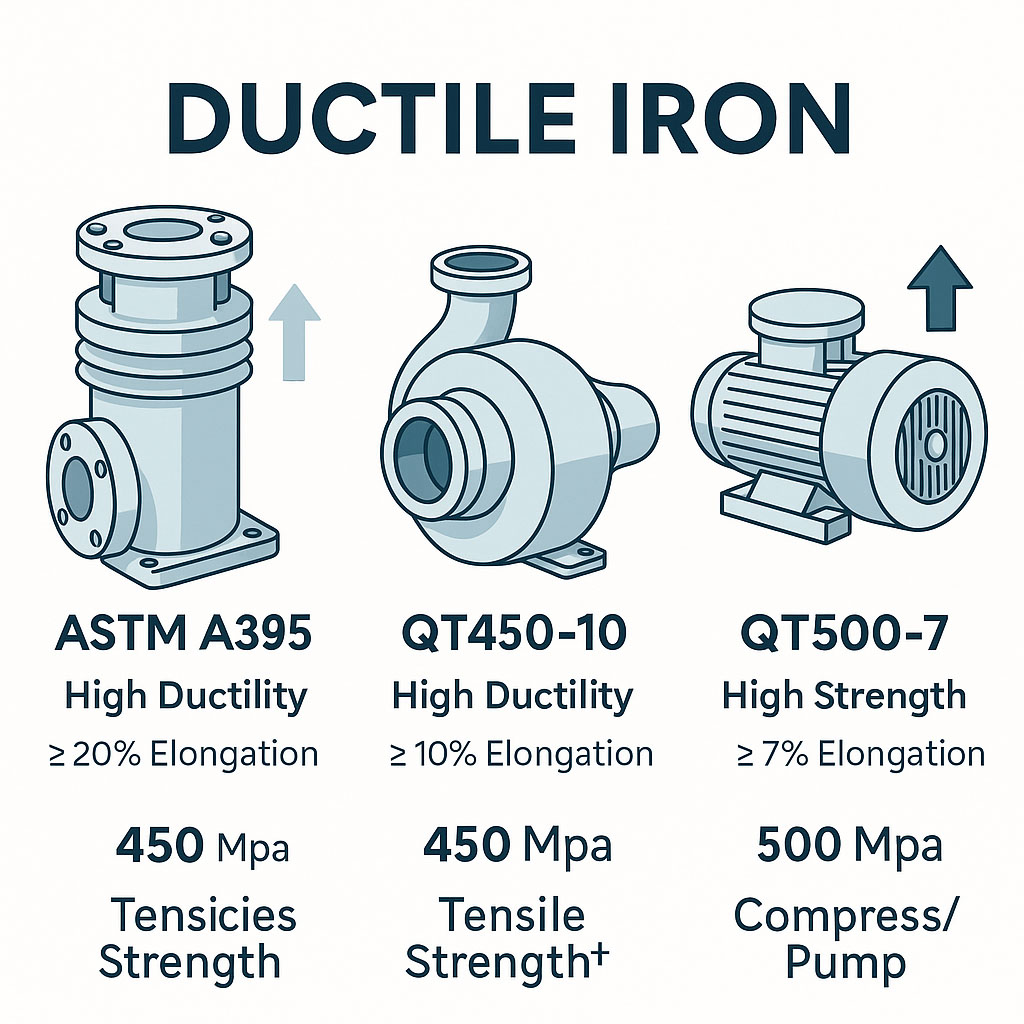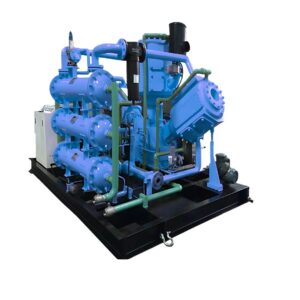In today’s industrial landscape, the demand for clean, efficient, and reliable compressed air is paramount. Oil-free air compressors have emerged as a solution, offering contamination-free air suitable for various applications, from pharmaceuticals to food processing.
Understanding Oil-Free Air Compressors
Unlike traditional compressors that use oil for lubrication and sealing, oil-free compressors operate without any oil in the compression chamber. This design ensures that the compressed air is free from oil contaminants, making it ideal for sensitive applications.
There are several types of oil-free compressors, including:
-
Scroll Compressors: Known for their quiet operation and compact design, suitable for medical and laboratory settings.
-
Screw Compressors: Offer continuous operation and are ideal for large-scale industrial applications.
-
Centrifugal Compressors: Best suited for high-capacity applications, providing oil-free air at higher flow rates.
Each type has its advantages, and the choice depends on specific application requirements.
The Role of Cooling Systems in Oil-Free Compressors
Efficient cooling is crucial for the optimal performance of oil-free compressors. Since there’s no oil to absorb and dissipate heat, alternative cooling methods are employed:
-
Air Cooling: Uses ambient air to cool the compressor components. It’s simple and cost-effective but may be less efficient in high-temperature environments.
-
Water Cooling: Employs water to absorb heat, offering more consistent cooling, especially in demanding applications.
Proper cooling ensures:
-
Extended equipment lifespan
-
Consistent performance
-
Reduced risk of overheating
-
Lower maintenance costs
Benefits of Oil-Free Compressors with Advanced Cooling
Integrating efficient cooling systems with oil-free compressors offers several advantages:
-
Enhanced Efficiency: Maintains optimal operating temperatures, ensuring consistent performance.
-
Reduced Downtime: Minimizes the risk of overheating-related failures.
-
Environmental Compliance: Eliminates the need for oil disposal, aligning with environmental regulations.
-
Cost Savings: Lowers maintenance and operational costs over the compressor’s lifespan.
Conclusion
Oil-free air compressors, when paired with effective cooling systems, provide a reliable and efficient solution for industries requiring clean compressed air. By understanding the types of oil-free compressors and the importance of cooling, businesses can make informed decisions to enhance their operations.
For more information on selecting the right oil-free compressor and cooling system for your needs, feel free to contact Keepwin experts.











